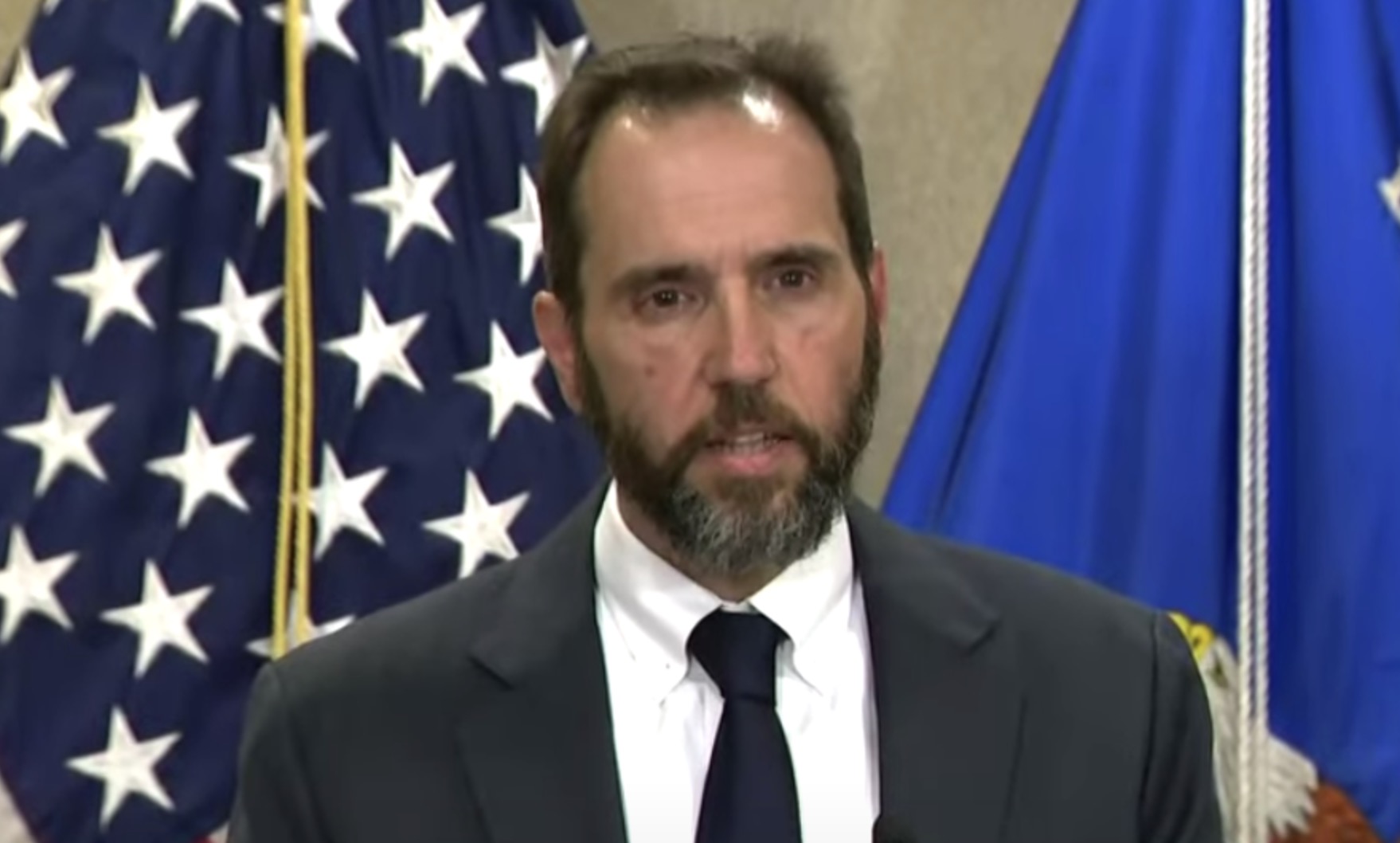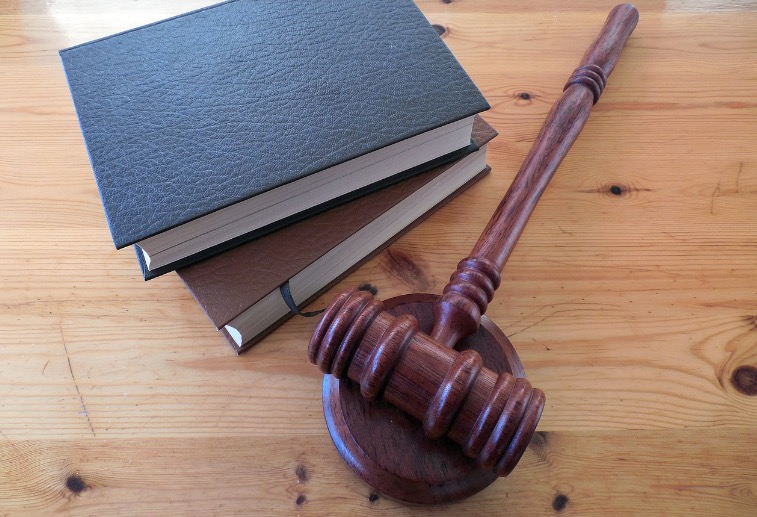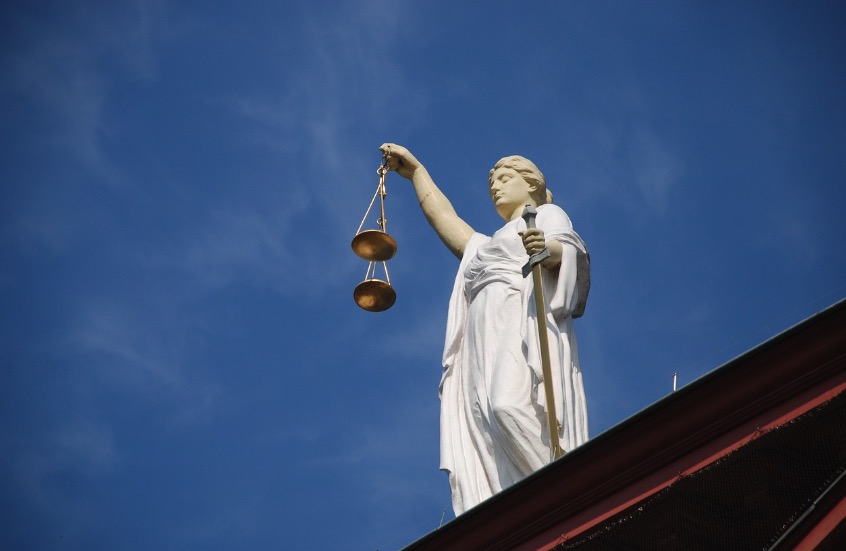The U.S. Supreme Court is set to hear two cases that could impact Special Counsel Jack Smith’s ability to prosecute Donald Trump.
Jack Smith’s Job Is Getting Harder

via CBS
The Supreme Court has agreed to hear arguments for presidential immunity in Donald Trump’s case. Legal experts say if the Court rules broadly in favor of presidential immunity claims in Trump’s case, it could make Smith’s job much harder or even prevent prosecution.
Delayed Until Late April

via Fox News
The Supreme Court also imposed a 2-month delay before hearing the Trump case, which makes matters worse for Jack Smith’s team.
Criminal Trials After November

via LiveNOW from FOX
SCOTUS announced it will hear arguments on April 22. This will help delay Trump’s criminal trials until after the 2024 election.
Jan 6 Capitol Riot Case

via NBC News
The high court is also set to hear a case, Fischer v. U.S., that challenges the application of obstruction laws to the January 6th Capitol riot cases.
Law professor Jeffrey Rosen

via Pixabay
“There’s a centrally important case in the Supreme Court where the Court’s going to decide whether the core of Jack Smith’s charges involving obstruction of justice are consistent with Constitution and the law or not,” George Washington University law professor Jeffrey Rosen said.
Much harder to pursue

via Pixabay
Experts argue a narrow ruling could call those charges into question as well. “If they throw those out, that’s going to be a stake in the heart of the Jack Smith case. It won’t prevent it, but it’ll make it much harder to pursue,” Rosen said.
Obstruction of justice

via LiveNOW from FOX
“The Jack Smith timing depends on, first, what the Supreme Court does—is it going to rehear immunity or just uphold the D.C. circuit?” Rosen said. “But then next month there’s a centrally important case in the Supreme Court where the court’s going to decide whether the core of Jack Smith’s charges involving obstruction of justice are consistent with the Constitution and the law or not,” the report read.
Statutory language at issue

via Pixabay
“As far as the effect on the other January 6 cases that have a Section 1512(c)(2) count, nothing will happen at the argument that would affect them,” attorney Fritz Ulrich said. “But we may be able to discern how some of the justices view the statutory language at issue.”
Pursuit of political opponents

via Pixabay
“The Biden administration’s pursuit of its political opponents must be stopped,” Sen. Tom Cotton said. “Their strained interpretation of the law would criminalize vast swaths of everyday political conduct and violate the First Amendment—which Congress never granted, and no administration should have the power to lock up political opponents for 20 years for merely trying to ‘influence’ Congress.”
Prosecuting a former president

via Pixabay
The outcome of these cases could define the legal boundaries of prosecuting a former president and set precedents for related cases like those stemming from January 6th.
Presidential immunity

via Fox News
Legal experts argue that presidential immunity only applies to official acts, not personal actions, and that prosecuting Trump would serve as a deterrent to future candidates.
Constitutional law professor

via 60 Minutes
Hofstra University constitutional law professor James Sample, said, “Trump’s attempt to use election disruption concerns as a bulwark against prosecution for actions aimed at not only disrupting, but actually overturning, a valid election is, at best, cognitive dissonance.”
Supreme Court Decision

via Pixabay
“I sincerely doubt that the Supreme Court wants to sanction future January 6’s,” he continued.
Criminal defendant

via NBC News
The D.C. Circuit Court previously ruled, “Former President Trump has become citizen Trump, with all of the defenses of any other criminal defendant.”
Unbounded authority to commit crimes

via Sky News
“We cannot accept former President Trump’s claim that a president has unbounded authority to commit crimes that would neutralize the most fundamental check on executive power — the recognition and implementation of election results,” their ruling continued.
Official duties of the president

via Fox News
David Schultz, professor of political science at Hamline University, said, “The prosecution here is of acts that were not part of the official duties of the president.”
Threat of criminal prosecution

via Pixabay
“To allow former presidents carte blanche immunity from all criminal prosecution renders the president above the law and sets a dangerous precedent that he can do whatever he wants. The threat of criminal prosecution is one of several checks to restrain presidential abuses of power, and it also ensures, as Article II Section 3 of the Constitution states, that the president takes care that the laws are faithfully executed. One cannot ‘take care’ if one can violate criminal law with impunity,” he continued.
Unfairly limits my ability

via VICE
Schultz added, “One cannot do something wrong and then argue that this wrongdoing unfairly limits my ability to wage an effective political campaign. Trump should have thought of all of this before he did what he did,” explained the professor.
Failure to prosecute

via Fox News
“If presidents are sworn to preserve, protect, and defend the Constitution, failing to prosecute them as candidates essentially says that they are exempt from honoring or upholding the very oath they must take if elected to that office,” he concluded. Failure to prosecute would set a bad precedent and imply exemption from upholding the presidential oath.
Lawsuits and Prosecution

via NBC News
While a president is in office, they are generally shielded from civil lawsuits related to their official duties. This immunity is intended to protect the president from being burdened by lawsuits that could distract from their responsibilities. However, this immunity is not absolute, and it does not extend to actions taken before or after their presidency, or to matters unrelated to their official duties.
While In Office

via Sky News Australia
The Department of Justice has a long-standing policy that a sitting president cannot be indicted or criminally prosecuted while in office. This principle is based on the belief that it would unduly interfere with the president’s ability to carry out their duties and could destabilize the government. However, it’s important to note that this is a policy, not a law, and there is ongoing debate about whether a president can be criminally prosecuted while in office.


